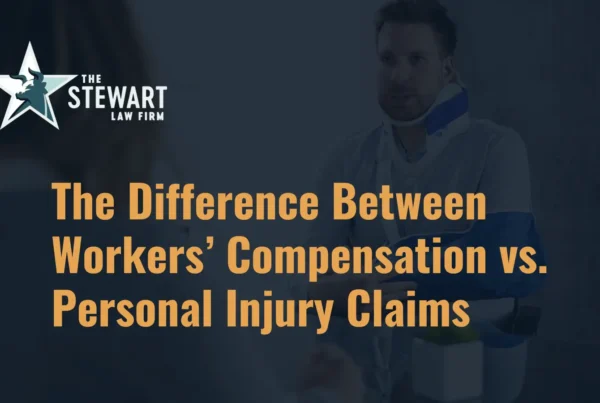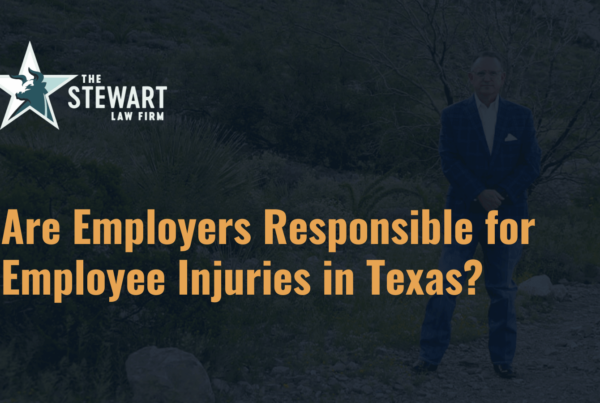Traumatic brain injuries (TBIs) are more common than you might think.
Every year 1.5 million Americans sustain these types of injuries. While an average of 230,000 do survive, the sad truth is that roughly 50,000 people die from these brain injuries and another 80,000-90,000 experience long-term disability.
Unfortunately, even for those who do manage to go on to live successful lives after a TBI, more often than not their medical bills stack up quickly.
In this blog, our dedicated Texas personal injury lawyer at The Stewart Law Firm looks at what exactly these traumatic brain injuries entail, as well as types of treatment options that are possible.
Types of Traumatic Brain Injury Treatments
TBIs can permanently damage your brain and lead to coma or death.
But the brain is flexible and adaptable.
It responds to environmental changes and can heal itself in a process known as “neuroplasticity.”
That’s why there’s a good chance of survival if you seek medical care immediately.
If you merely rely on the brain’s self-healing power, however, you’ll be worsening the consequences.
The following are varying types of TBIs based on severity.
Mild Traumatic Brain Injury
Mild TBI is when you experience changes in brain function for a few minutes after trauma.
It’s the least severe case of a TBI and is caused by a violent shake or a blow to the head.
Without immediate attention, mild TBIs may worsen. Seek a doctor’s care to even confirm if it’s mild, and take the necessary treatments.
It usually requires just a few basic treatments, including:
- rest
- pain relievers
- some visits to the doctor
Moderate Traumatic Brain Injury
Moderate TBI is when you experience changes in brain function longer than a few minutes following trauma.
Moderate TBI usually demands immediate emergency care to make sure the victim has enough oxygen, adequate blood supply, and good blood pressure.
Also, most victims of moderate TBIs will have other injuries that need to be addressed. That’s why it’s essential to seek a doctor’s care immediately.
Severe Traumatic Brain Injury
Severe TBIs are caused by crushing blows or penetration to the skull and brain.
These types of injuries occur when the victim experiences deteriorating brain dysfunction for a very long time after trauma.
Of course, you shouldn’t wait a long time to discover if it’s a severe TBI. After an injury of this nature, you need professional medical aid immediately or could be risking death.
What To Do After a Traumatic Brain Injury
There are several treatment options available for TBIs. And depending on the severity of your case, you may need:
- Medication: Most mild or moderate TBI cases can be treated with medicines like diuretics, antiseizure, or coma-inducing drugs.
- Surgery: Severe injuries may need surgery to remove clotted blood, repair skull fractures, stop bleeding in the brain or open a window in the skull.
- Rehabilitation: After treatment for more severe injuries, some patients will need to relearn some necessary skills, such as talking, walking, eating, etc. You’ll need a rehabilitation specialist such as a physiatrist, occupational therapist, speech and language pathologist, etc.
At the Stewart Law Firm, we understand the devastating effect that a non-traumatic brain injury can have on you and your family. Not only do these injuries require extensive medical treatments and therapies, but they are also extremely expensive, often resulting in thousands or even millions of dollars in unpaid bills. Working with a personal injury firm like ours will allow you to fight to get the financial assistance you need to cover everything from your recovery to your long-term care.
Contact the Stewart Law Firm today
Can you recover from a traumatic brain injury? Yes, you can, but you need medical aid immediately or risk the chance of recovery. No matter the case, we’re here to help you through this process.
Contact The Stewart Law Firm today at (512) 326-3200 to schedule a consultation with our team.





